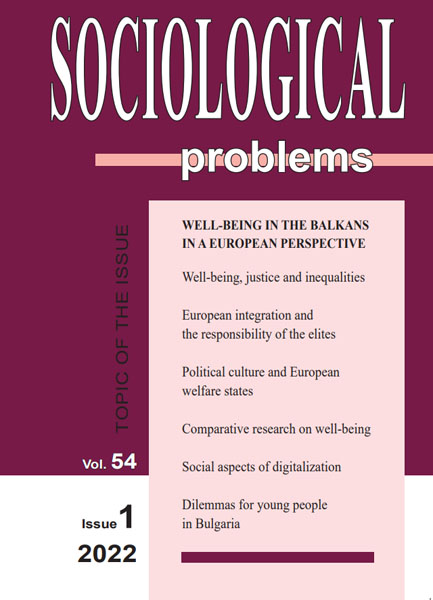Statism as a Conservative Political Value in Bulgaria
Statism as a Conservative Political Value in Bulgaria
Author(s): Martin KonstantinovSubject(s): Social Sciences, Sociology, Social Theory, Policy, planning, forecast and speculation, Social Norms / Social Control, Sociology of Politics
Published by: Институт по философия и социология при БАН
Keywords: statism; core political values; conservatism; conservative value cluster; ideological orientation
Summary/Abstract: One of the most fundamental problematics of European integration is the issue of the common European identity. The academic and policy debates that are developed around this issue highlight the fact that the EU cannot be transformed into a nation-state or even retain the characteristics that we know form nation-states, such as cultural identity and collective memory. Nevertheless, the European identity ‒ partly a social reminder and partly a social construction ‒ demands a transnational sense of identification. During the transition from “communitarianism” to “sociability” and modernity, new networks of relationships emerge and the phobic syndrome of otherness is more easily dealt with. Nevertheless, despite the forces of modernization ‒ such as the growing familiarity with social diversifications, travel facilities and mixed marriages, among others ‒ social groups continue to play a leading role in forming collective memories and identities and developing trust-building mechanisms. In any case, what still constitute the pivotal factors for such formations are collective memories and identifications. Against these backdrops, the European identity still lacks the necessary social groups as well as the collective memories and identifications to drive this trust-building forward. Due to that, the acceptance of the European identity is subject to constant fluctuations, which warrants investigation.
Journal: Социологически проблеми
- Issue Year: 54/2022
- Issue No: 1
- Page Range: 153-171
- Page Count: 19
- Language: English
- Content File-PDF

